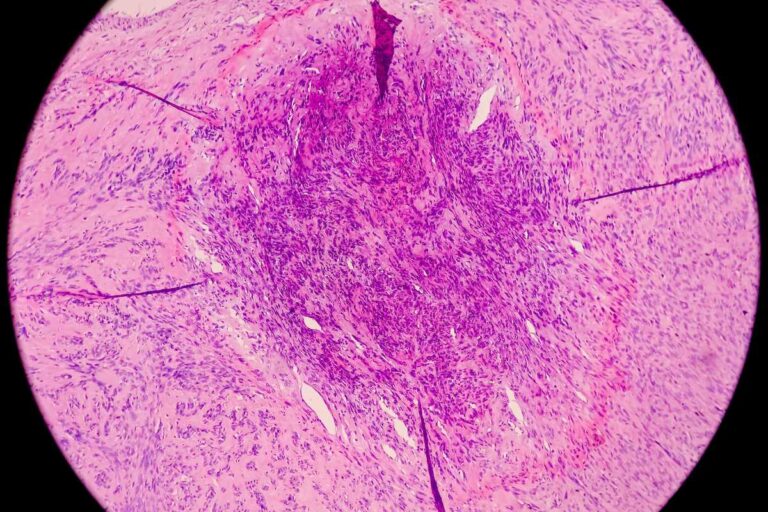Prophetic Medicine for Heart Disease: Preventing with Islamic Wisdom
Prophetic Medicine for Heart Disease: Preventing with Islamic Wisdom

Prophetic medicine has long been recognized as a valuable approach to managing various ailments, including heart disease. Drawing from the teachings and practices of Islamic tradition, prophetic medicine offers alternative and natural remedies for promoting holistic health.
With a rich history dating back centuries, this ancient practice has gained renewed attention in recent years.
We will delve into the historical roots of this practice, highlighting its use in treating various ailments throughout time. We will discuss the importance of exploring alternative remedies for heart disease management, considering their potential to complement conventional treatments.
Join us on this journey as we delve into the world of prophetic medicine for heart disease and uncover its potential impact on our well-being.
| Causes of Heart Disease | Explanation |
|---|---|
| Poor Diet | Consuming a diet high in saturated fats, cholesterol, and sodium can increase the risk of heart disease. |
| Lack of Physical Activity | Leading a sedentary lifestyle without regular exercise can contribute to the development of heart disease. |
| Smoking | Smoking damages blood vessels and reduces the amount of oxygen in the blood, increasing the risk of heart disease. |
| High Blood Pressure | Uncontrolled high blood pressure can damage arteries and increase the risk of heart disease. |
| Diabetes | People with diabetes are at a higher risk of developing heart disease due to elevated blood sugar levels. |
| Obesity | Being overweight or obese puts extra strain on the heart, increasing the likelihood of heart disease. |
| Family History | Having a family history of heart disease can increase the risk of developing the condition. |
| Stress | Chronic stress can contribute to the development of heart disease by raising blood pressure and affecting overall health. |
“Explore our latest articles on Prophetic Medicine to discover simple, natural remedies that can improve your health. Check them out now and start feeling better!“
Importance of Prophetic Medicine in Heart Disease Prevention
Heart disease is a significant health concern that affects millions of people worldwide. While medical advancements have provided effective treatments, the importance of preventive measures cannot be overstated.
Incorporating prophetic medicine into heart disease prevention strategies can offer valuable benefits and improve overall outcomes.
Significance of Preventive Measures
Prevention is always better than cure, especially. Taking proactive steps to reduce risk factors can significantly lower the chances of developing cardiovascular problems. By focusing on prevention, individuals can maintain their heart health and avoid potentially life-threatening conditions.
Contribution of Prophetic Medicine
Prophetic medicine refers to natural remedies and practices derived from the teachings and traditions of Prophet Muhammad (peace be upon him).
These remedies have been used for centuries and are known for their holistic approach to health and well-being.Prophetic medicine offers several potential contributions:
- Dietary Guidelines: Prophetic medicine emphasizes a balanced diet consisting of wholesome foods such as fruits, vegetables, whole grains, lean proteins, and beneficial fats like olive oil. Following these dietary guidelines can help manage weight, control cholesterol levels, and reduce the risk of heart disease.
- Herbal Remedies: Many herbs mentioned in prophetic medicine have been found to possess medicinal properties that benefit cardiovascular health. For example, black seed (Nigella sativa) has shown potential in reducing blood pressure and improving lipid profiles.
- Physical Activity: The importance of regular exercise in preventing heart disease is highlighted both in modern medicine and prophetic traditions. Engaging in moderate physical activity regularly helps maintain a healthy weight, strengthens the heart muscle, improves circulation, and reduces stress levels.
- Stress Management: Chronic stress is a significant risk factor for heart disease. Prophetic medicine encourages practices such as prayer (Salah), meditation (Dhikr), and seeking tranquility in nature to alleviate stress and promote emotional well-being.
Benefits of Integrating Natural Remedies
Integrating prophetic medicine into conventional treatments for heart disease can offer several benefits:
- Reduced Side Effects: Natural remedies often have fewer side effects compared to pharmaceutical medications, making them a safer option for long-term use.
- Complementary Approach: Prophetic medicine can complement conventional treatments by addressing underlying causes and promoting overall wellness. This holistic approach may enhance the effectiveness of medical interventions.
- Empowerment and Self-Care: Incorporating natural remedies empowers individuals to take an active role in their health. It encourages self-care practices that promote well-being beyond treating specific symptoms.
Potential Impact on Risk Factors
By following the principles of prophetic medicine, individuals can address various risk factors associated with heart disease:
- High Blood Pressure: Dietary modifications, herbal remedies, physical activity, and stress management techniques recommended in prophetic medicine can help lower blood pressure levels naturally.
- Elevated Cholesterol Levels: The emphasis on consuming wholesome foods and beneficial fats can help regulate cholesterol levels, reducing the risk of plaque buildup in arteries.
- Obesity and Diabetes: Prophetic dietary guidelines advocate for portion control, avoiding excessive consumption of sugary foods, and engaging in regular physical activity – all crucial factors in managing weight and preventing diabetes.
Incorporating prophetic medicine into heart disease prevention strategies offers a holistic approach that addresses multiple aspects of well-being. By adopting these natural remedies alongside conventional treatments, individuals can take proactive steps towards maintaining a healthy heart.
Hadiths and Islamic Teachings on Heart Disease Treatment
Relevant Hadiths for Heart Disease Treatment
Prophet Muhammad (PBUH) left behind a wealth of wisdom, including guidance on the treatment of heart diseases. In one hadith, he said, “Indeed in the body there is a piece of flesh which, if it is healthy, the whole body is healthy, and if it is corrupt, the whole body is corrupt.
Indeed it is the heart.” This hadith highlights the significance of maintaining a healthy heart for overall well-being.
Another relevant hadith states that “The strong believer is better and more beloved to Allah than the weak believer.” This implies that taking care of our physical health, including our hearts, is an essential part of being a strong believer.
Emphasis on Holistic Well-being
Islamic teachings emphasize holistic well-being encompassing physical health as well as spiritual and mental wellness. The Prophet Muhammad (PBUH) encouraged his followers to engage in activities that promote good health.
For instance, he advised moderation in eating and drinking: “No human fills a vessel worse than his stomach. It is sufficient for a human to have a few mouthfuls to straighten his back.”
Islam also encourages regular exercise and physical activity. The Prophet (PBUH) himself engaged in various physical activities such as horse riding and archery.
He said, “Teach your children swimming, archery, and horse riding.” These teachings highlight the importance of maintaining an active lifestyle for overall well-being.
Effective Management Strategies
Islamic principles can guide individuals towards effective management strategies for heart diseases. By following prophetic practices such as moderation in eating and engaging in regular exercise, individuals can reduce their risk factors for heart disease.
Seeking knowledge from authentic sources plays a crucial role in implementing Islamic principles in healthcare.
Individuals should consult reliable scholars or experts who possess both religious knowledge and medical expertise. This ensures that the advice received aligns with Islamic teachings and is medically sound.
Seeking Knowledge from Authentic Sources
To effectively implement prophetic medicine for heart disease, individuals should seek knowledge from authentic sources.
There are numerous books available that compile hadiths related to health and well-being. These books can provide valuable insights into the guidance provided by Prophet Muhammad (PBUH) regarding heart disease treatment.
However, it is important to ensure that the sources consulted are reliable and trusted. Islamic scholars, reputable medical professionals, and well-established Islamic organizations can serve as trustworthy sources of information.
Natural Remedies for Heart Diseases in Islamic Principles
In addition to the spiritual guidance provided by Prophet Muhammad (PBUH), Islamic teachings also offer valuable insights into maintaining a healthy heart. These teachings include recommendations for natural remedies that can be beneficial in managing heart diseases.
By incorporating these remedies into our lifestyle, we can strive towards a healthier heart and overall well-being.
Herbal Medicines for Managing Cardiovascular Conditions
Prophet Muhammad (PBUH) often emphasized the use of herbal medicines as a means of healing various ailments, including heart diseases. Many herbs have been found to possess properties that can support cardiovascular health.
For instance, black seed oil, known as “habbatus sauda,” has been used traditionally to improve blood circulation and reduce cholesterol levels. Similarly, garlic is believed to have anti-inflammatory effects and may help lower blood pressure.
Dietary Recommendations Based on Islamic Principles
Islamic principles also provide dietary guidelines that promote a healthy heart. The concept of moderation (“mizan”) is emphasized, encouraging individuals to maintain balance in their food consumption.
This includes avoiding excessive intake of fatty and fried foods, which are known to contribute to heart diseases. Instead, the emphasis is placed on consuming wholesome foods such as fruits, vegetables, whole grains, lean proteins, and nuts.
Significance of Using Natural Ingredients
The use of natural ingredients in treating heart diseases aligns with the holistic approach advocated by Islam.
These ingredients not only provide potential benefits but also minimize the risk of harmful side effects associated with certain medications. Natural remedies often contain essential nutrients that support overall cardiovascular health.
Incorporating prophetic medicine into our lives requires an understanding of its principles and practices.
It is important to consult with healthcare professionals knowledgeable about both traditional Islamic medicine and modern medical advancements when considering these remedies as part of a comprehensive treatment plan.
To summarize:
- Islamic teachings offer valuable insights into natural remedies for heart diseases.
- Herbal medicines, such as black seed oil and garlic, can support cardiovascular health.
- Islamic dietary principles emphasize moderation and the consumption of wholesome foods.
- Using natural ingredients aligns with the holistic approach advocated by Islam.
By embracing these natural remedies within the framework of Islamic principles, individuals can take proactive steps towards maintaining a healthy heart.
However, it is crucial to remember that these remedies should complement medical advice and not replace professional healthcare guidance.
Incorporating Faith and Spirituality in Heart Disease Management
The connection between faith, spirituality, and overall well-being, including cardiovascular health, is worth exploring. Many believe that spiritual practices can have a positive influence on the mental and emotional aspects related to heart diseases.
Faith-based interventions have shown promising results in improving cardiac health. For example:
Spiritual Practices and Mental Health
Engaging in prayers and other spiritual practices can provide a sense of calmness and peace, reducing stress levels. Stress is often linked to heart disease, as it can contribute to high blood pressure and increased risk of heart attacks.
Emotional Well-being and Heart Disease
Faith-based communities often provide social support networks that foster emotional well-being. Having a strong support system can help individuals cope with the challenges that come with managing heart disease.
The Power of Positive Thinking
Believing in the power of healing through faith can have a profound impact on one’s mindset. Positive thinking has been associated with better outcomes for individuals facing various health conditions, including heart disease.
Holistic Approach to Heart Disease Management
Managing heart disease requires a holistic approach that considers not only physical factors but also spiritual aspects. By addressing both dimensions, individuals may experience improved overall well-being.
It is important to note that incorporating faith and spirituality into heart disease management should complement medical treatment rather than replace it. Working closely with healthcare professionals ensures comprehensive care for patients.
Dietary Guidelines from Prophet Muhammad (PBUH) for a Healthy Heart
The teachings of Prophet Muhammad (PBUH) not only encompass spiritual guidance but also provide valuable insights into maintaining a healthy heart through dietary guidelines. These guidelines emphasize the consumption of wholesome and balanced meals, moderation in food intake, and the avoidance of excessive consumption of unhealthy foods.
Specific Dietary Guidelines for a Healthy Heart
Prophet Muhammad (PBUH) emphasized the importance of consuming pure and natural foods. He encouraged his followers to eat what is good and pure, avoiding anything that may be harmful or detrimental to their health.
One such example is the recommendation to consume ajwah dates, which are known for their numerous health benefits, including their positive impact on heart health.
Benefits of Wholesome and Balanced Meals
Following Islamic teachings, which promote wholesome and balanced meals, can contribute significantly to maintaining a healthy heart. Consuming a variety of nutrient-rich foods ensures that our bodies receive essential vitamins, minerals, and antioxidants necessary for optimal cardiovascular function.
A diet rich in fruits, vegetables, whole grains, lean proteins, and healthy fats can help reduce the risk factors associated with heart disease.
The Significance of Moderation in Food Intake
Prophet Muhammad (PBUH) emphasized moderation in all aspects of life, including food consumption. Excessive eating can lead to weight gain and increase the risk of developing heart disease. By practicing portion control and being mindful of our eating habits, we can maintain a healthy weight and reduce strain on our hearts.
Exploring Prophetic Fasting Practices
Fasting is an integral part of Islamic tradition observed during the holy month of Ramadan. This practice involves abstaining from food and drink from dawn until sunset. While fasting has spiritual significance, it also offers potential benefits for cardiovascular health.
Research suggests that intermittent fasting can improve blood pressure levels, cholesterol profiles, insulin sensitivity, and overall heart health. However, it is essential to maintain a balanced diet during non-fasting hours to ensure adequate nutrient intake.
Incorporating the dietary guidelines mentioned by Prophet Muhammad (PBUH) can have a positive impact on heart health.
By consuming pure and natural foods, following a wholesome and balanced diet, practicing moderation in food intake, and exploring prophetic fasting practices, individuals can reduce their risk of developing heart disease and promote overall well-being.
Lifestyle Modifications Based on Islamic Teachings for Heart Health
Regular Physical Activity: Keeping Your Heart Pumping
Regular physical activity is a key lifestyle modification recommended by Islamic teachings to promote heart health. Engaging in exercise not only strengthens the muscles but also has positive effects on cardiovascular well-being.
By incorporating physical activity into our daily routines, we can reduce the risk of heart diseases such as heart attacks, high blood pressure, and high cholesterol levels.
Stress Management Techniques: Finding Inner Peace
Stress can take a toll on our hearts, leading to various health issues. Islamic principles offer valuable stress management techniques that can benefit individuals with heart diseases. Taking time for prayer and meditation helps calm the mind and provides solace.
Trusting in Allah (SWT) and seeking His guidance through prayer can alleviate stress and anxiety, promoting overall heart health.
Hygiene, Sleep Patterns, and Self-Care Practices: Nurturing Your Body
Maintaining good hygiene, following proper sleep patterns, and practicing self-care are essential components of an Islamic lifestyle that contribute to heart health. Good hygiene practices such as regular handwashing help prevent infections that may impact the heart.
Adequate sleep allows the body to rejuvenate and repair itself, supporting optimal cardiovascular function. Self-care practices like eating nutritious meals and avoiding excessive indulgence are emphasized in Islam to maintain a healthy body.
By adhering to these lifestyle modifications based on Islamic teachings for heart health, individuals can take proactive steps towards preventing cardiovascular diseases.
Prophetic Medicine’s Role in Preventing Heart Diseases
We discussed the importance of incorporating Islamic teachings and hadiths into heart disease treatment, as well as natural remedies based on Islamic principles.
We examined the role of faith and spirituality in managing heart health and highlighted dietary guidelines from Prophet Muhammad (PBUH) for a healthy heart. Finally, we delved into lifestyle modifications inspired by Islamic teachings that can contribute to maintaining a healthy heart.
By embracing Prophetic Medicine practices and following the guidance provided by Islamic teachings, individuals can take proactive steps towards preventing heart diseases. T
he combination of natural remedies, spiritual connection, and adherence to a healthy lifestyle can significantly impact overall cardiovascular health. It is essential to remember that these practices should complement medical advice and treatments prescribed by healthcare professionals.
To further enhance your understanding of Prophetic Medicine for heart disease prevention or address any specific concerns you may have regarding this topic, please feel free to explore the FAQs below.
FAQs
Can Prophetic Medicine completely cure heart diseases?
While Prophetic Medicine offers valuable insights into preventing and managing heart diseases, it is important to note that severe cases may require medical intervention. It is always recommended to consult with healthcare professionals for proper diagnosis and treatment plans.
Are there any specific dietary restrictions mentioned in Islamic teachings for a healthy heart?
Islamic teachings emphasize moderation in food consumption and highlight the importance of incorporating wholesome foods such as fruits, vegetables, whole grains, lean proteins, and avoiding excessive intake of unhealthy fats and sugars.
How does spirituality play a role in managing heart health?
Spirituality can provide solace during challenging times and help reduce stress levels which are known contributors to cardiovascular problems. Engaging in regular prayer, meditation, reflection upon religious texts can promote mental well-being and indirectly benefit heart health.
Are there any specific physical activities recommended in Prophetic Medicine for heart health?
Prophetic Medicine encourages engaging in regular physical activity, such as walking or other moderate exercises, which can improve cardiovascular fitness and overall health. It is advisable to consult with a healthcare professional before starting any exercise regimen.
Can Prophetic Medicine practices be combined with conventional medical treatments?
Yes, Prophetic Medicine practices can complement conventional medical treatments. It is important to inform your healthcare provider about any complementary approaches you are considering to ensure they align with your overall treatment plan.







